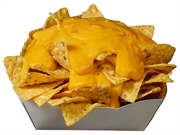
In the midst of a U.S. epidemic of opioid abuse, knowing how to quickly administer the anti-overdose drug naloxone could save a life. Now, research finds that delivering naloxone via nasal spray could be the quickest and easiest of three methods of administration. “Our goal was to see if there was a method that was… read on >


















